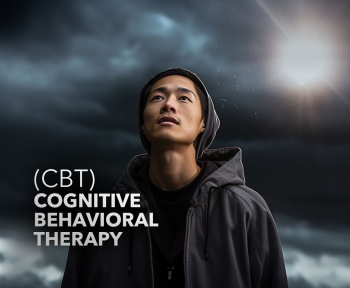Psychological disorders and substance abuse disorders (SUDs) coexist in a person with a mental health co-occurring disorder. An effective treatment plan must address the complex and challenging intersection presented by this intersection. In the book, co-occurring disorders are explained, their impact on well-being, and how to break the cycle of substance abuse and mental illness through integrative treatment.
The co-occurrence of disorders
Several psychological disorders coexist with substance use disorders, including depression, anxiety, bipolar disorder, and PTSD. The prevalence of dual diagnoses is high, affecting a significant portion of the population. Approximately 8.4 million Americans alone suffer from co-occurring disorders.
Mental Health and Substance Abuse
A vicious cycle exists between mental disorders and mental illnesses where they aggravate each other. Drug use disorders are associated with self-medication and psychological disorders. Conversely, substance use can contribute to developing or worsening psychological symptoms.
How substance use impacts health mentality and vice versa
Drug use alters brain chemistry, causes underlying disorders to worsen, and interferes with emotional regulation. However, psychological disorders can intensify substance use through self-destructive behavior, impaired judgment, and greater vulnerability to addiction
Barriers to Treatment
Treatment stigmas surrounding psychological and substance use disorders hinder treatment access.Shame, fear of judgment, and reluctance to disclose struggles can result from these stigmas. Co-occurring disorders require a compassionate understanding and a challenge to stigma.
Identifying common obstacles in accessing appropriate treatment
Several obstacles hinder individuals with co-occurring disorders from accessing suitable treatment. These include limited availability of integrated treatment programs, fragmented healthcare systems, financial constraints, Lack of awareness about available resources, and logistical difficulties in coordinating mental health and substance use treatment services.
Lack of integrated treatment approaches
Traditional treatment approaches often separate psychological and substance use services, leading to fragmented care and poor provider coordination. On the other hand, integrated treatment addresses both conditions concurrently, recognizing the interconnectedness and relevance of each. Unfortunately, the Lack of widespread implementation of integrated treatment models hampers effective care for co-occurring disorders.
Integrated Treatment: A Holistic Approach
The integrated treatment model combine psychological and substance abuse services into a unified treatment program. These models aim to ensure that individuals receive simultaneous and coordinated care from professionals trained in mental health and addiction. Typically, integrated treatment involves a multidisciplinary team, including psychiatrists, therapists, nurses, case managers, and peer support specialists.
Providing ongoing support and aftercare services
Sustaining recovery requires ongoing support and aftercare services. These services may include continued therapy, support groups, outpatient programs, and regular check-ins with healthcare professionals. Ongoing support plays a crucial role in maintaining motivation, navigating challenges, and promoting long-term success in recovery.
Holistic Approaches to Recovery
Treatment incorporating alternative therapies (e.g., art therapy, yoga, mindfulness)
As part of holistic recovery, the mind, body, and spirit are addressed. Art therapy, yoga, mindfulness, and meditation are alternatives that can help individuals enhance their self-expression, stress reduction, emotional regulation, and self-care.
Promoting healthy lifestyle changes and self-care practices
Healthy lifestyle changes and self-care practices are vital in promoting overall well-being and supporting recovery. Encouraging regular exercise, balanced nutrition, adequate sleep, engaging in fulfilling activities, and nurturing healthy relationships contribute to an individual’s overall stability and recovery.
Addressing the spiritual component in recovery
Spirituality plays a significant role in recovery for some. Addressing the spiritual component involves recognizing and exploring an individual’s beliefs, values, and practices. Incorporating spiritual elements, such as meditation or involvement in religious or spiritual communities, can give individuals a sense of purpose, connection, and inner strength.
Treatment gaps and disparities in mental health
Disparities in access to co-occurring disorder treatment need to be more equitable, with certain populations experiencing heightened disparities. These disparities may be influenced by socioeconomic factors, racial and ethnic disparities, geographical barriers, and limited availability of culturally competent services. Addressing these disparities is crucial to ensuring all individuals have equal access to comprehensive, integrated treatment.
Strategies for addressing treatment gaps in different populations:
Tailored strategies are needed to address treatment gaps in different populations. It can be improving the cultural competency of healthcare providers, increasing the visibility of available services, promoting community education initiatives, and advocating for policy changes that provide resources for underserved populations.
FAQs
1. How can you tell if you have a co-occurring disorders?
- Frequent mood swings and irritability
- Changes in sleeping or eating habits
- Increased isolation or withdrawal from social activities
- Persistent feelings of sadness or hopelessness
- Difficulties concentrating or making decisions
2. Typically, how long does it take to treat co-occurring disorders in mental health?
Depending on the individual’s needs and progress, co-occurring disorders treatment can last from one week to several months. Support is provided throughout the recovery process and underlying issues are addressed.
3. Can co-occurring disorders be effectively treated without medication?
Treatment for co-occurring disorders does not only involve medication. Integrated and comprehensive care, including therapy and counseling, can enhance recovery outcomes as well. Each person needs and prefers a different treatment plan.
4. Is there a resource or support group for co-occurring disorders?
The co-occurring disorders community offers a variety of support and resources. Online platforms and online psychological clinics are among them
5. How can friends and family assist someone who has co-occurring disorders?
Having family and friends support is essential for individuals with co-occurring disorders. There are several ways to provide support, including
At Dr. Dee Health Center, we prioritize the holistic treatment of recurring disorders, focusing on mental health and substance abuse concerns. Our approach recognizes the crucial link between these aspects, and we have found that individuals experience enhanced recovery rates, improved well-being, and a higher quality of life when they confront and conquer the intricate relationship between these disorders.
Taking the first stride towards recovery involves reaching out for assistance and engaging in tailored treatment. When it comes to individuals with co-occurring disorders, encompassing both psychological conditions and substance abuse issues (SUDs), a comprehensive treatment strategy is paramount. Our experts specialize in crafting effective plans that navigate the intricate challenges posed by this convergence.
Seek help and explore integrative treatment for a brighter future.





